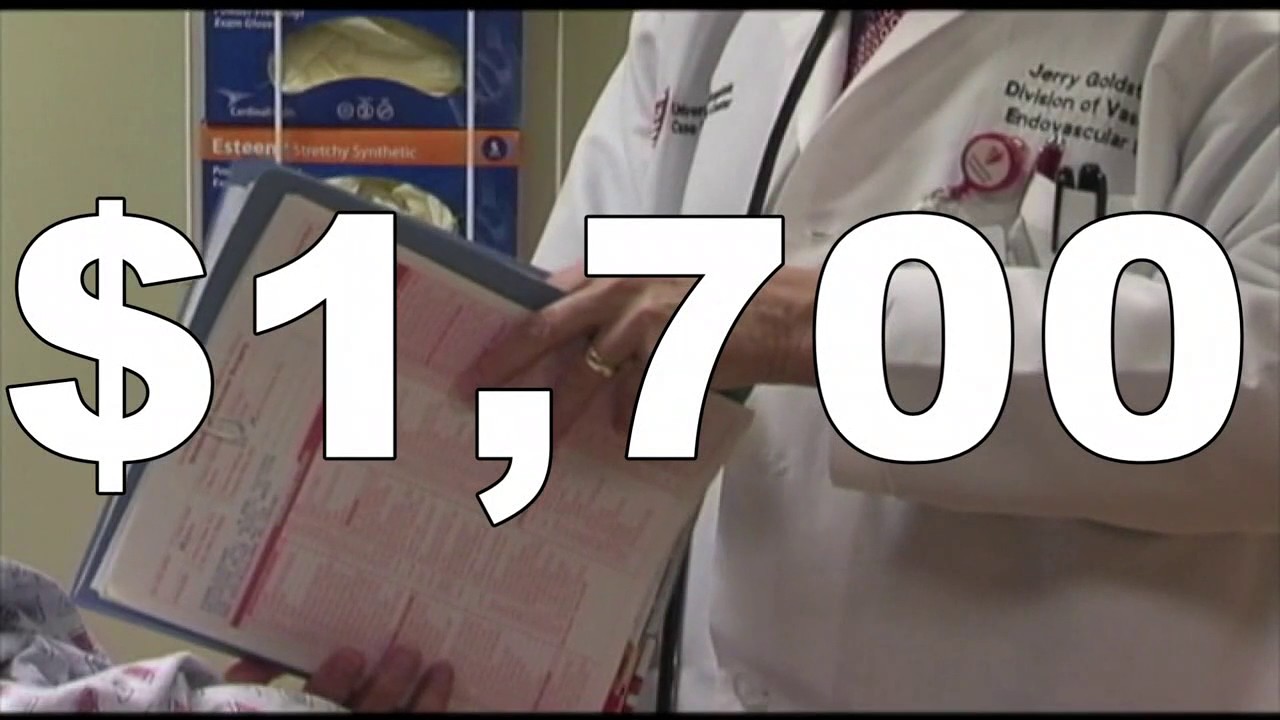How To Negotiate Medical Bills - Secrets Of Lowering Your Medical Expenses
How to negotiate medical bills is very important to learn as the costs associated with medical care are sometimes unexpected and challenging to understand. Perhaps you decided to go through with treatment without fully understanding the costs involved. Maybe you or someone you care about recently had a medical emergency and had to pay a lot for care.
Author:Suleman ShahReviewer:Han JuDec 29, 2022131.4K Shares2M Views

How to negotiate medical billsis very important to learn as the costs associated with medical care are sometimes unexpected and challenging to understand. Perhaps you decided to go through with treatment without fully understanding the costs involved.
Maybe you or someone you care about recently had a medical emergency and had to pay a lot for care. The need for double-checking medical invoices for mistakes is often overlooked. Even if everything is in order, you may be able to bargain for a lower total or a more manageable payment schedule.
Why Is My Hospital Bill So High?
By 2021, Americans have spent over $4 trillion on healthcare or more than $12,000 per person. By 2028, experts predict the number will have risen to $6 trillion. If you compare the cost of healthcare in the United States to that of other developed countries, you'll see that the American approach is far more expensive.
Even with health insurance, medical care costs are prohibitive for many Americans. Medical debt is more common among the uninsured, but even insured patients may be hit with huge charges because of deductibles, co-pays, and balance bills.
Hospital expenses depend on a wide range of variables, including the patient's condition, the nature of the surgery being performed, the price of the procedure itself, the cost of the operating room and recovery, the price of diagnostic imaging, and the patient's medical bills.
At the very least, 25% of healthcare expenditures (or $1 trillion annually) are allocated to administrative expenses. According to a study by the RAND Corporation, the cost of medicine in the United States is 256% higher than in 32 other countries.
Patients sometimes have serious money issues as a result of hospital medical bills. Although most Americans have healthinsurance, many still struggle to pay their medical expenses out of pocket.
In June 2020, around 18% of the U.S. population, or one in six people, were sought by collection agencies due to medical debt. According to the survey, two-thirds of bankruptcies may be traced back to health problems. Non-insured hospitalized COVID-19 patients should expect to pay an average of $73,300.
Tips To Negotiate Medical Bills
Time and effort are often required when attempting to negotiate a medical bill. Your choices may also be affected by your health insurance company, your ability to pay, the cost of living in your area, and the healthcare provider's business model.
Your situation and level of persistence and competence in negotiations will determine how far you go. It's worth experimenting with the following approaches.
Request An Itemized Bill
The first step is to ask the medical facility for a detailed invoice. Each itemized charge and its corresponding billing code should be included. Verify that there are no mistakes on the statement, such as for services or medications you did not get or for which you were charged twice.
Talk With The Provider About Your Alternatives
Even if there are no mistakes on your account, you may still contact the service provider to go through it. You may get a break if you paid in full or made a sizable down payment right away, or maybe you qualified for a hardship program. Additionally, certain service providers may provide interest-free or almost interest-free payment options.
Inquire About Any Programs For Financial Assistance
After you've fixed any billing problems, look into what kind of financial help your doctor or hospital may offer. Many hospitals are compelled by federal and state law to help patients pay for "medically essential" services if they can't afford them. Hospitalizations and ER visits are included.
Evaluate Insured Rate For Your Service
If you don't qualify for your healthcare provider's financial aid programs, study the "insured" rate for the treatments you've gotten. Uninsured people may pay extra for the same treatment. Insurance companies negotiate reduced pricing with healthcare providers for patients. You may also negotiate with insurers.
Using well-researched numbers can aid in bargaining without an insurance company. Check out what an insurance company may provide for the service you had. Ask your provider's billing agency to honor the pricing. FAIR Health4 is an online tool to assess local medical costs.
Negotiate For A Payment Plan
Don't be concerned if you cannot negotiate a lower price with the billing agency. You don't have to give up just yet. While some healthcare providers will not compromise on their costs, they may be more accommodating with your payment plan.
For example, instead of paying your whole medical bill all at once, you may be able to divide it into many monthly payments, enabling you to pay it off gradually over time.
Unlike your monthly credit card statement, hospital and clinic expenses are often interest-free. In the long run, making monthly payments to your hospital will be less expensive than making monthly payments to your credit card to attempt to pay off your medical costs.

How to negotiate your medical bills
People Also Ask
What Should I Do If My Medical Bill Goes To Collections?
Don't freak out if your medical bill has already been handed to collectors. A creditor may be willing to work with you to set up a payment plan with manageable monthly payments and a reduced or zero interest rate.
Again, if you want to get out from under your debt, do not use a high-interest credit card to pay off a creditor. Instead, keep your cool and work on it incrementally.
How Do You Negotiate With A Billing Company?
Asking the provider open-ended questions about exemptions, reductions, and relief programs is a valuable strategy for negotiating large payments. What kinds of discounts do you provide for those with financial difficulties?
How Do You Negotiate With A Hospital?
Negotiate with hospital managers to get them to let you pay less. Here are some techniques and measures to consider: Examine the legislation. Do your homework. Take up the phone. Pose open-ended inquiries.
Talk about your alternatives. If appropriate, request medical forgiveness. Consider using the services of a professional negotiator.
Can I Negotiate My Medical Bills To Get Them Reduced?
There are medical bill negotiation firms, such as Medgotiate and CoPatient. They will attempt to reduce medical bills in return for a part of the savings, often between 20% and 30% of the money you no longer have to pay. And if you do not have any savings, you will not be compensated.
Final Words
Even though it might be nerve-wracking to receive a large medical bill, keep in mind that the amounts shown aren't necessarily final. Follow the tips about how to negotiate medical bills as discussed above. You should be able to negotiate a more manageable medical cost or a more convenient payment plan for you and your loved ones.

Suleman Shah
Author
Suleman Shah is a researcher and freelance writer. As a researcher, he has worked with MNS University of Agriculture, Multan (Pakistan) and Texas A & M University (USA). He regularly writes science articles and blogs for science news website immersse.com and open access publishers OA Publishing London and Scientific Times. He loves to keep himself updated on scientific developments and convert these developments into everyday language to update the readers about the developments in the scientific era. His primary research focus is Plant sciences, and he contributed to this field by publishing his research in scientific journals and presenting his work at many Conferences.
Shah graduated from the University of Agriculture Faisalabad (Pakistan) and started his professional carrier with Jaffer Agro Services and later with the Agriculture Department of the Government of Pakistan. His research interest compelled and attracted him to proceed with his carrier in Plant sciences research. So, he started his Ph.D. in Soil Science at MNS University of Agriculture Multan (Pakistan). Later, he started working as a visiting scholar with Texas A&M University (USA).
Shah’s experience with big Open Excess publishers like Springers, Frontiers, MDPI, etc., testified to his belief in Open Access as a barrier-removing mechanism between researchers and the readers of their research. Shah believes that Open Access is revolutionizing the publication process and benefitting research in all fields.

Han Ju
Reviewer
Hello! I'm Han Ju, the heart behind World Wide Journals. My life is a unique tapestry woven from the threads of news, spirituality, and science, enriched by melodies from my guitar. Raised amidst tales of the ancient and the arcane, I developed a keen eye for the stories that truly matter. Through my work, I seek to bridge the seen with the unseen, marrying the rigor of science with the depth of spirituality.
Each article at World Wide Journals is a piece of this ongoing quest, blending analysis with personal reflection. Whether exploring quantum frontiers or strumming chords under the stars, my aim is to inspire and provoke thought, inviting you into a world where every discovery is a note in the grand symphony of existence.
Welcome aboard this journey of insight and exploration, where curiosity leads and music guides.
Latest Articles
Popular Articles
